District 27 Debate: Tackling Issues Head On
The crowd settles down as the debate begins.
Tuesday evening, May 15, the congressional candidates for District 27 gathered for the first debate before the primaries in August. The night featured candidates David Richardson, Michael Hepburn, Kirsten Rosen Gonzalez and Matt Haggman. Donna Shalala is also running for the seat, but was not able to join the evening’s debate due to prior commitments.
The debate took place in Unitarian Universalist Congregation of Miami at 6 pm and was organized by the “Democrats of South Dade.” Over three hundred guests arrived at the church that evening; all waiting to hear these candidates speak candidly about some of the important issues on the table. The rain and limited number of seats did not keep the public away!
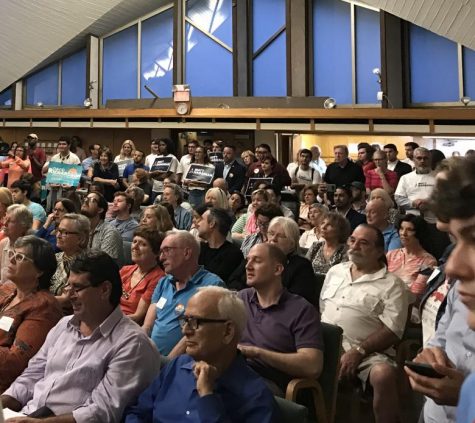
Over three hundred guests attended the night’s debate.
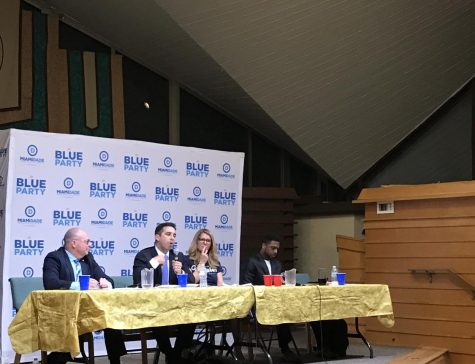
Candidate Matt Haggman elaborates his position on receiving money from corporate companies.
This debate was the first in the long ride leading to the primary election, where one of these candidates will be chosen to represent the Democratic party as they aspire to turn incumbent Ileana Ros-Lehtinen’s seat blue. The next debate will be held May 19 at the Donna Shalala student center at the University of Miami. Since the commencement of the race for the seat, Shalala has been polled as the strongest candidate so far. Nonetheless, Shalala’s absence did not hold back the other candidates from sharing their opinions on frontrunner issues and allowing the crowd to hear their responses live.
“Seeing almost all of the candidates in the same room was awesome. I was particularly impressed with two candidates: David Richardson and Michael Hepburn. Richardson seemed to be the one with the clearest plan for the seat while Hepburn appeared to be the most courageous of the five candidates. Saying he would not just support any of the other candidates was blatantly honest and awesome,” senior Will Breslin said
The first questions of the night were presented to the candidates as “yes or no” questions in a rapid-fire series. These questions included the topics of single-payer healthcare, the decriminalization of marijuana, and the banning of military-grade weaponry and others.
“I think I expected the lighting round to have more ‘It’s complicated’ responses. I feel like a lot of the candidates were just trying to respond with what the audience wanted to hear and were being disingenuous in doing so. However, I think some questions and responses really set each of the candidates apart,” junior Nikita Leus-Oliva, who served as one of the moderators for the evening, said
The first disagreement of the night arrived when the topic of campaign fundraising and campaign spending was introduced. Rosen-Gonzalez took the opportunity to call out fellow candidate Richardson on one of his methods of raising funds for his campaign. However, Richardson responded that he has not received any money from the Democratic Congressional Campaign Committee and that his online contributions are from those who share the same ideas as he and want him to represent them in Congress.
As the night progressed, the candidates moved forward, answering more of the public’s questions. However, interest peaked when the candidates were asked a question about criminal justice reform and not all could answer coherently. Once again Rosen-Gonzalez and Richardson went head-on as Rosen-Gonzalez struggled to answer the question; leaving Richardson to seize the opportunity to opinionate on her response which was to remove men from correction facilities to “stop the abuses.” Richardson responded with, “You know, I wasn’t sure what I was going to say until Commissioner Rosen Gonzalez started speaking. I would absolutely not take men out of the prison system because that’s called discrimination. Next somebody will say let’s take the gays out and not give them a job.” It is no secret that representative Richardson is openly gay, and if elected to Congress, he will be the first openly gay elected official to represent a southern state.
When the debate began to dwindle to an end, the moderators asked a final question—will you support the Democratic candidate, even if it is not you? All but Hepburn answered “Yes.” When asked if he would like to elaborate his response he added, “If I don’t believe the person believes in the values that I’m hearing from the thousands of houses that we’ve visited, no.”
Overall, the debate proved to be informational for all those in attendance. The candidates were able to show their community members just how much they want to be their representative as the primaries grow nearer.
Your donation will support the student journalists of Coral Gables Senior High School. Your contribution will help us cover our annual website hosting costs.
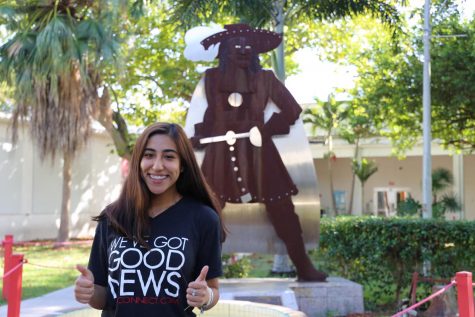
Jesse Zambrano is a senior in the International Baccalaureate (IB) program. When she arrived to the US, it was clear to Zambrano how important it was to...


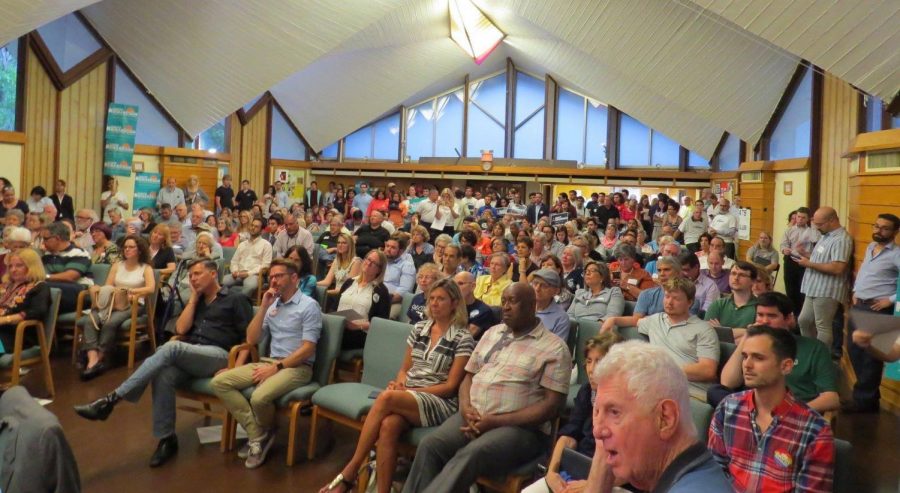

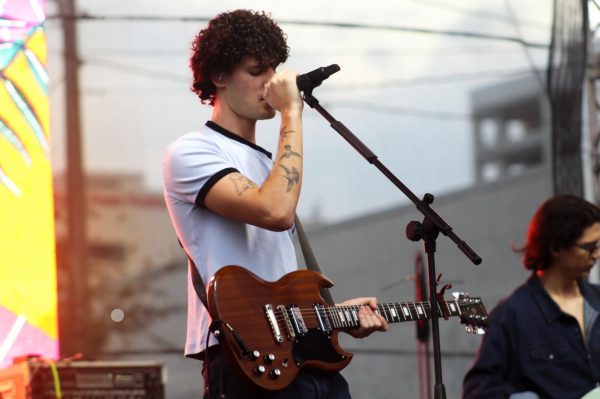
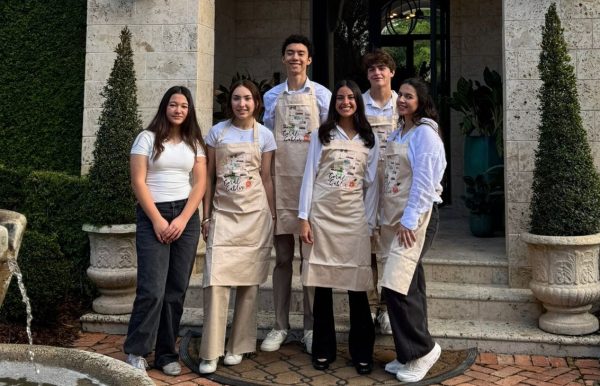

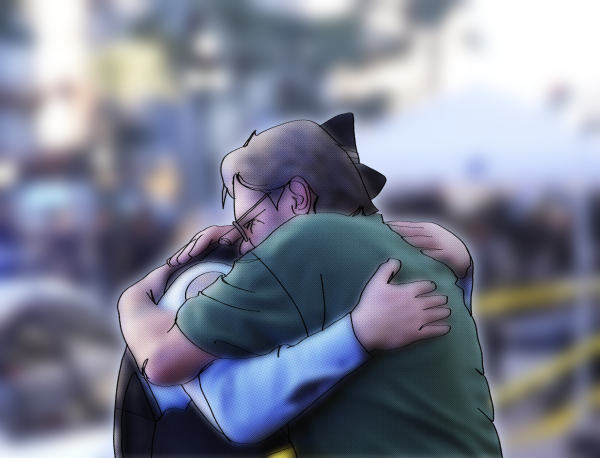
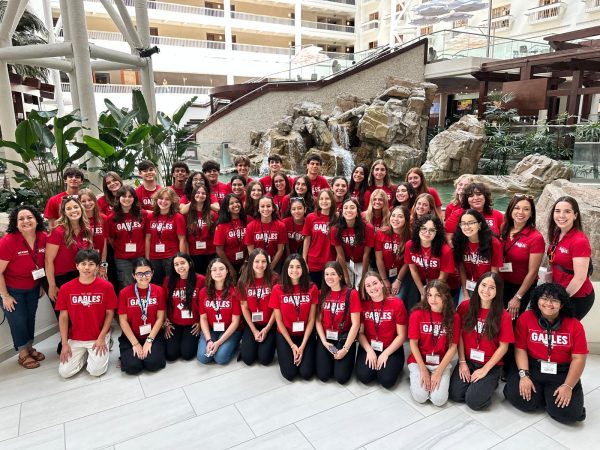
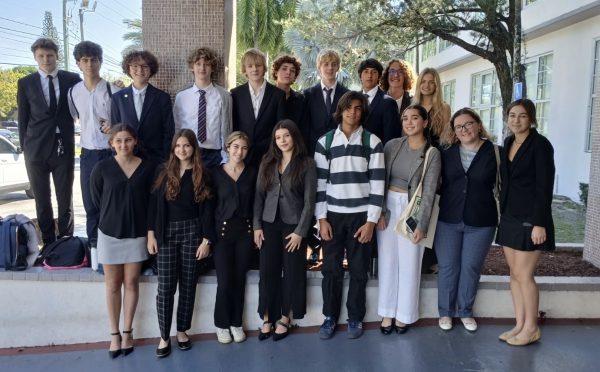

Smithg831 • Aug 14, 2018 at 12:53 am
I do agree with all the ideas you have introduced for your post. They are really convincing and can certainly work. Still, the posts are very brief for newbies. May you please extend them a bit from subsequent time? Thank you for the post. fefedeeddcedfffg